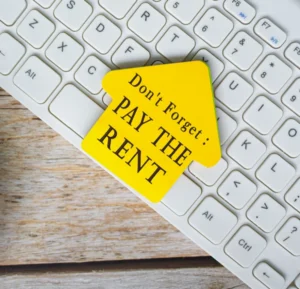7 Qualities of a Great Tenant
 Great tenants are what keep you in this business. They pay rent on time, get along with neighbors, and take care of your property. They respect the lease and respond to your communications. Great tenants will help you maintain stable cash flows, save money on repairs, and avoid all kinds of headaches. Once you find reliable tenants, you’ll want to keep them around as long as possible. Nobody’s perfect, of course—but if you’re looking to fill vacancies, there are some clues you can look for that let you know you’re on the right track. Here are seven qualities of a great tenant.
Great tenants are what keep you in this business. They pay rent on time, get along with neighbors, and take care of your property. They respect the lease and respond to your communications. Great tenants will help you maintain stable cash flows, save money on repairs, and avoid all kinds of headaches. Once you find reliable tenants, you’ll want to keep them around as long as possible. Nobody’s perfect, of course—but if you’re looking to fill vacancies, there are some clues you can look for that let you know you’re on the right track. Here are seven qualities of a great tenant.
1) Credit Rating
A credit report contains information about what lines of credit a prospective renter has opened and how they have treated these debts in the past. Credit reporting agencies aggregate this data into an overall credit rating from 300 to 850. Average credit is about 650, and 700 is good. Where you draw the line on your tenants is up to you, but chances are a below average borrower will be a below average renter.
Needless to say, massive debt loads are a huge red flag, especially if they are under credit cards. Beyond the credit score, the information about payment history is extremely important. If a potential tenant has been responsible in paying off debts, it bodes well for their capacity to pay rent fully and on time.
2) Income Verification
The minimum threshold monthly income we recommend is three times the rent, but a great tenant will exceed that. As part of your application, ask for a few recent pay stubs or bank statements. These documents can be forged, so you will also want to follow up with the employer to verify their status (more on that later). A pay stub gives you clues about employment stability, while a bank statement might give you information about other obligations. Even if the renter meets the three-times-rent criterion, expenses like several car payments might put rent in month-to-month jeopardy.
Please note: depending on where your property is, it might be illegal to discriminate against renters who are receiving unemployment benefits. Consult your lawyer or local landlords’ group to make sure you are following fair housing laws in your area.
3) No Prior Evictions
Nobody evicts a reliable renter. Extenuating circumstances might make somebody passable, but an eviction means a landlord went all the way to court just to free up the property. In most cases, look onward.
4) Clean Criminal Record
Money doesn’t tell the whole story. If somebody offers to pay the full first year in cash but can’t provide a pay stub, that’s more than a little suspicious. You have a responsibility to protect your renters from criminal activity, and renting to people with a history of violent crime is a huge liability. A great tenant won’t give you anything to worry about in this regard.
Fair housing laws do apply, as always. In some places, housing discrimination on the basis of criminal history is illegal—check with your lawyer or local landlords’ group.
5) Solid References
A reliable renter has solid, responsive references. Whether that’s an employer, a professional reference, a landlord, or even a friend, it’s important to know who has this prospective tenant’s back. If nobody does, then that’s a bad sign.
For an employer reference, your prospective tenant might have to fill out a disclosure of information form before the manager or HR representative will talk to you. It’s a good idea to have this form attached to the rental application so you’ll have it handy when you call. Sometimes, the employer can only confirm dates of employment or (maybe) salary. It might not be much info, but it is reliable info, so see that it matches the information on the application.
Professional references are from somebody who worked with the tenant. They give you a more detailed picture of the tenants’ working habits (and therefore, employment stability) than a direct employer reference. A coworker probably knows the tenant better than the HR representative does, but they might be less trustworthy.
The past few landlord references can tell you information that only a landlord knows. Did they pay rent on time? Did they break a lot of things? Did they cause a ruckus? On the other hand, were they always complaining about people who were simply living their lives, and will they become a thorn in your side as a result? Beware that the current landlord has an incentive to lie, as they may be trying to get rid of the tenant, but the previous landlords will be more reliable.
6) Stable Residential Address
Moving around a lot is a small red flag. There are some jobs that require lots of different short-term residences, and when coupled with a credit check and the other items we’ve discussed, you’ll have an idea of whether such a renter will be a decent short-term option. If you typically rent short term anyway, that’s great, but for most landlords, short-term tenants mean the frequent hassle of filling vacancies, which can lead to dead time in the units. If you’re looking for tenants who will steadily pay rent, year after year, avoid people who’ve moved several times recently.
7) Complete Rental Application
Great tenants will fulfill their responsibilities to you. That begins with the rental application. If parts of the application are missing, that means a prospective renter is either hiding something or is simply sloppy. Best case scenario, it indicates that you’ll have to remind this tenant in the future to fill out other important documents, then waste time tracking down further corrections.
Wrapping Up
If it feels like you’re rifling through a haystack, that means you are on the path to finding a great tenant. Once you do, you’ll earn more stable rent and give yourself and your other tenants peace of mind. And even if you don’t find a perfect renter, the search gets you closer and closer each time.
About the Author
Innago is a free, easy-to-use property management software solution, designed to save you time & money. Innago allows you to easily: collect rent, screen tenants, list properties, manage work orders, create applications, sign leases, organize financials, communicate with tenants, & much more! Learn more here













 Accessibility
Accessibility